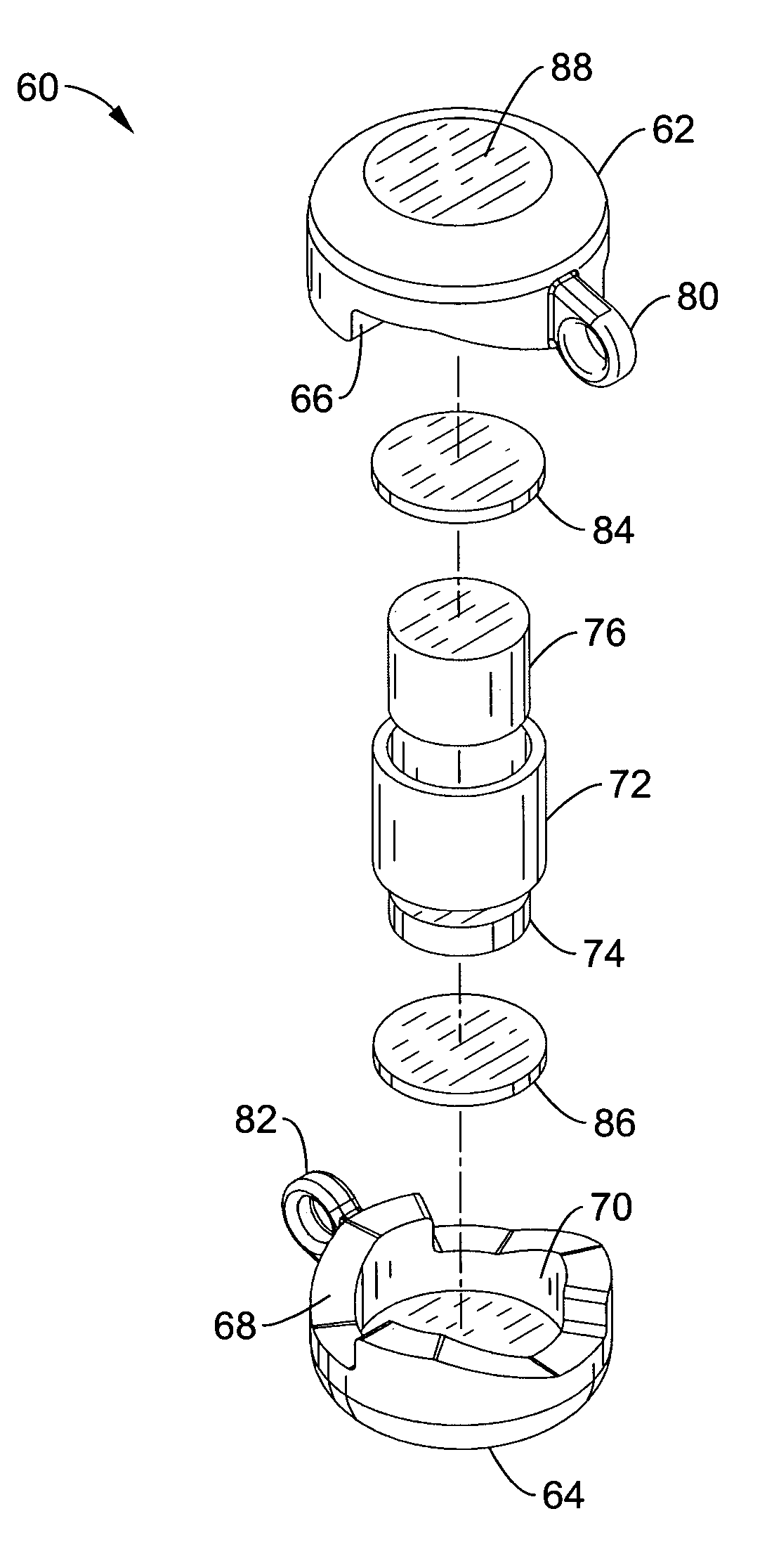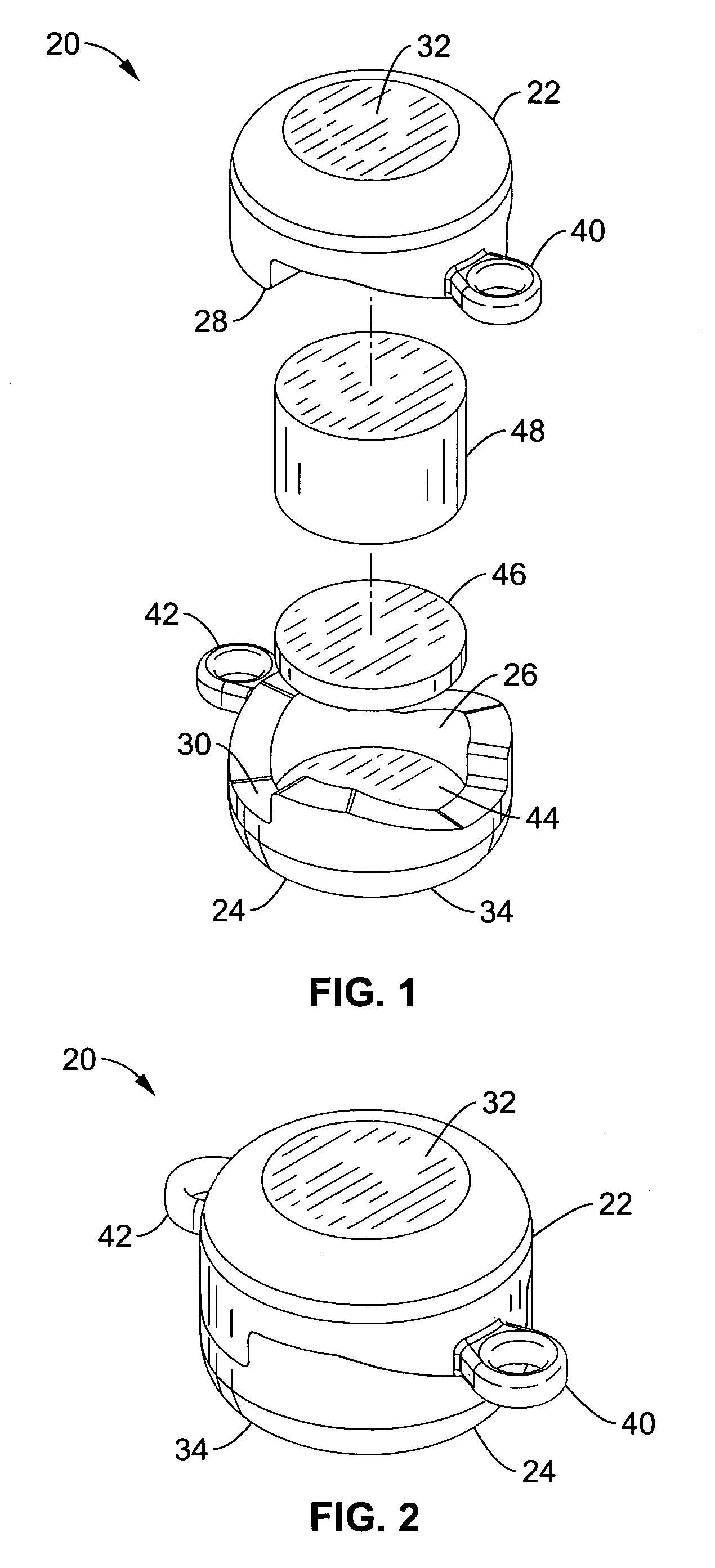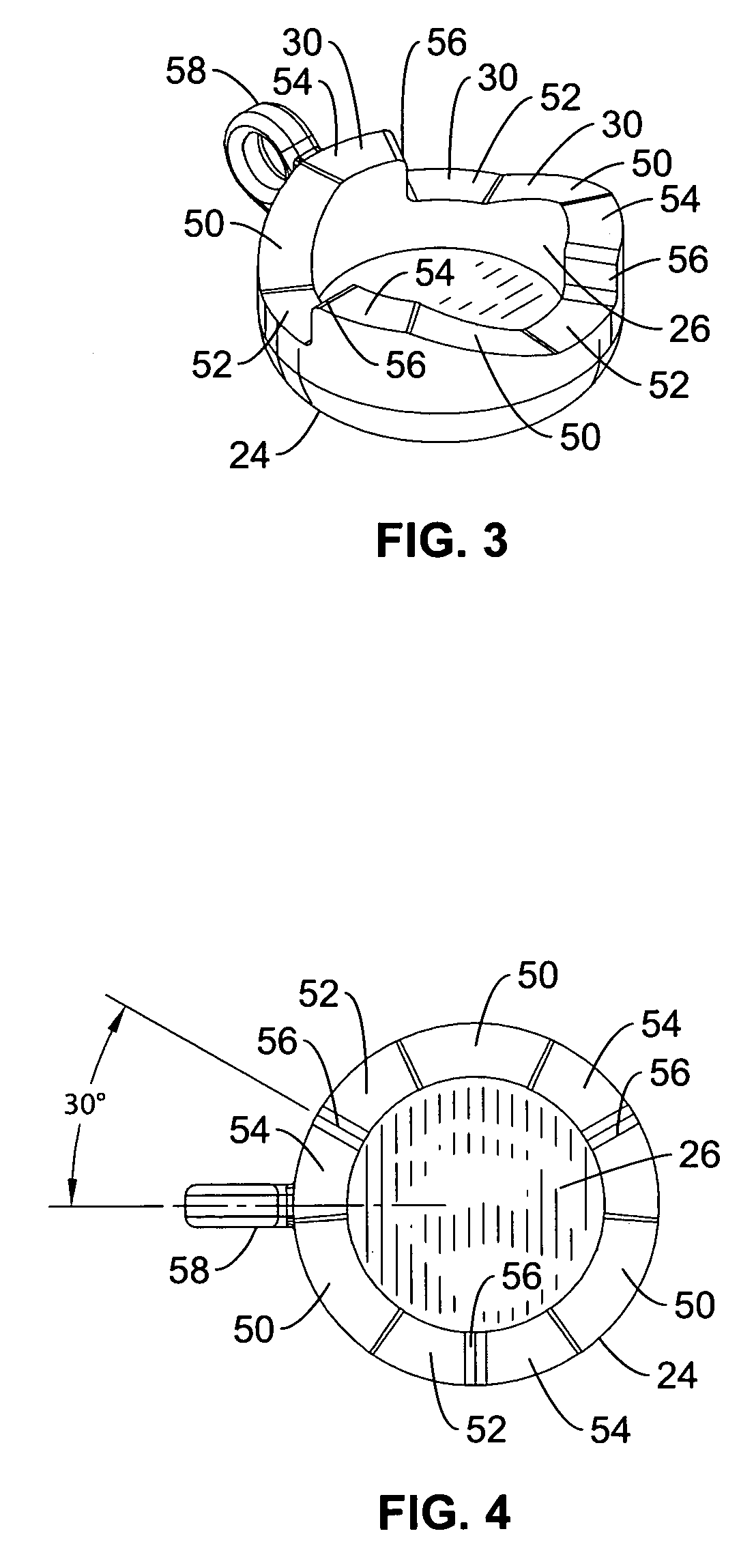Magnetic clasp apparatus
a technology of magnetic clasps and apparatuses, which is applied in the direction of bracelets, wristwatch straps, press-button fasteners, etc., can solve the problems of loss or anxiety about loss, poor quality of magnetic clasps, and easy disengagement of clasps accidentally, so as to reduce magnetic flux, increase structural resistance, and facilitate the effect of taking o
- Summary
- Abstract
- Description
- Claims
- Application Information
AI Technical Summary
Benefits of technology
Problems solved by technology
Method used
Image
Examples
Embodiment Construction
[0051]Referring more specifically to the drawings, for illustrative purposes the present invention is embodied in the apparatus generally shown in FIG. 1 through FIG. 7. It will be appreciated that the apparatus may vary as to configuration and as to details of the parts, and that the method may vary as to the specific steps and sequence, without departing from the basic concepts as disclosed herein.
[0052]FIG. 1 illustrates an exploded perspective view of a clasp 20 in accordance with the present invention. Clasp 20 generally comprises a top section 22 and a bottom section 24 of a material with no magnetic properties, such as sterling silver, bronze, gold or other precious metal or jewelry metal alloy. Other materials such as aluminum, copper, stainless steel, ceramic or plastic may be suitably used in some applications. These materials may be plated or coated with a precious metal or jewelry metal alloy. Top and bottom sections 22, 24 are generally opposing cylinders having a bore ...
PUM
 Login to View More
Login to View More Abstract
Description
Claims
Application Information
 Login to View More
Login to View More - R&D
- Intellectual Property
- Life Sciences
- Materials
- Tech Scout
- Unparalleled Data Quality
- Higher Quality Content
- 60% Fewer Hallucinations
Browse by: Latest US Patents, China's latest patents, Technical Efficacy Thesaurus, Application Domain, Technology Topic, Popular Technical Reports.
© 2025 PatSnap. All rights reserved.Legal|Privacy policy|Modern Slavery Act Transparency Statement|Sitemap|About US| Contact US: help@patsnap.com



